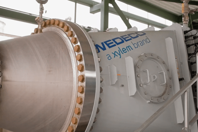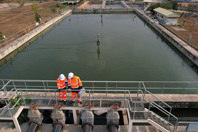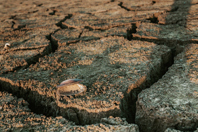WATER REUSE RESOURCES
-
Transitioning to advanced purification methods like UV-hypochlorite oxidation allows municipalities to secure reliable, local water supplies. These strategies mitigate drought risks and protect coastal environments by transforming wastewater into a high-quality resource for reuse.
-
With the rise of water scarcity, environmental regulations, and corporate sustainability mandates, produced water treatment has become a strategic imperative for industries far beyond oil and gas. It is one of the fastest-growing segments in the water treatment industry, which has emerged as an amalgamation of environmental stewardship, regulatory compliance, and technological innovation.
-
People around the globe are trying to figure out how to save, conserve, and reuse water in a variety of ways, including reusing treated sewage wastewater and removing valuable salts from seawater. But for all the clean water they may produce, those processes leave behind a type of liquid called brine. I’m working on getting the water out of that potential source, too.
-
As water systems become more circular and complex, understanding and managing the subsurface — the hidden half of the water cycle — is becoming a critical enabler of resilience. This article explores the key trends shaping this new reality, from tackling “forever chemicals” to the water strategies redefining heavy industry.
-
Making Waves spoke with Bing Liu, Sales GM of Xylem’s Water Infrastructure business in China, about the country’s growing water reuse opportunity and one utility leader that is leading the way: Beijing Drainage Group.
-
To combat drought, Abilene, Texas, implemented a reuse system utilizing O3 + BAC to remove trace organics. This solution met strict standards, ensured water resilience, and proved more cost-effective than AOP alternatives.
-
Researchers warn that California and other states affected by megadroughts — periods of drought lasting 20+ years — will have to accept this as the new normal. That means rethinking the water cycle and finding new, more sustainable water sources.
-
Because of our own decades-long mismanagement of our collective global water resources, we are now facing a global freshwater crisis where the demand for freshwater is predicted to exceed its supply by 40% by the year 2030. Directly coinciding with the water crisis timeline is the growing need for data center construction in order to accommodate AI, cloud computing, and other Big Data and IoT processing.
-
The business case for industrial water reuse has fundamentally shifted. Companies once evaluated these systems against environmental goals or regulatory compliance costs. Today, they're measuring them against operational risk and supply security — a calculation that increasingly favors reuse regardless of sustainability credentials.
-
Lessons in urban water management through water conservation, capture, and reuse.











